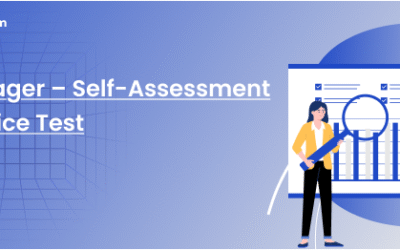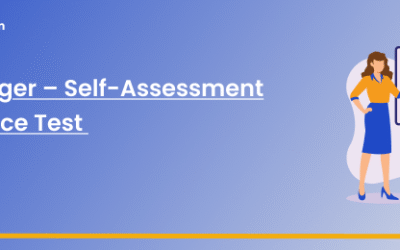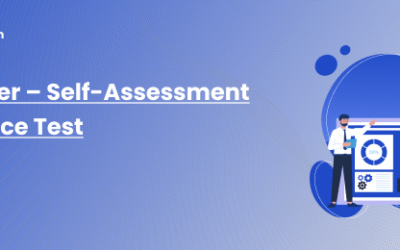In today’s dynamic work environment, the role of a Programme Manager is increasingly important. These professionals bridge the gap between various projects, ensuring that every aspect aligns with both organisational goals and project objectives. But what exactly does a Programme Manager do?
Their responsibilities include overseeing multiple interconnected projects, ensuring resources are allocated efficiently, and driving teams toward success. With a focus on strategic planning, risk management, and stakeholder communication, Programme Managers play a crucial role in steering organisations toward their aims.
This introduction sets the stage for understanding the specific roles and responsibilities that Programme Managers hold. Whether you’re considering a career in this field or aiming to improve your team’s effectiveness, you’ll find valuable insights ahead. For a visual overview, check out this informative video on Program Manager vs Project Manager: Key Differences.
To learn more about effective strategies in resource management, visit What Is Resource Management? and discover how to optimise resources in your projects.
Understanding the Role of a Programme Manager
Programme Managers hold a unique position within organisations, acting as coordinators who ensure that multiple projects align with overarching business goals. Understanding the intricacies of this role includes recognising how it differs from related positions such as Project Managers, as well as the skills necessary for success in this field.
Difference Between Programme Manager and Project Manager
The terms Programme Manager and Project Manager often get mixed up, but they encompass distinct responsibilities and scopes. At their core, the Project Manager focuses on the specifics of individual projects. They handle tasks like developing project plans, managing budgets, and ensuring deadlines are met. Their role is more operational and task-oriented.
Conversely, a Programme Manager oversees a group of related projects, connecting them to achieve broader organisational objectives. While Project Managers manage the day-to-day operations of their projects, Programme Managers look at the bigger picture. They ensure that resources are utilised efficiently across projects and that the outcomes contribute to strategic goals. For example, a Project Manager might oversee the implementation of a new software system, while the Programme Manager would ensure that the software integrates with other systems and supports long-term business strategies. Understanding this distinction can help clarify the hierarchy and collaborative nature of these roles.
Key Competencies of a Programme Manager
To excel as a Programme Manager, certain competencies are essential. These skills not only enhance the effectiveness of the role but also contribute to the overall success of the projects within the programme. Important competencies include:
Leadership Skills: A Programme Manager must inspire and guide diverse project teams. They need to be approachable and decisive, building trust among team members to foster collaboration.
Strategic Thinking: The ability to see the bigger picture is crucial. Programme Managers must align project outcomes with organisational goals, anticipating future needs and adapting strategies accordingly.
Communication Skills: Clear communication with stakeholders, teams, and sponsors is key. Programme Managers must convey complex ideas simply and keep everyone informed about progress and changes.
Risk Management: Identifying potential risks and mitigating them is a vital aspect of the role. This competency helps prevent issues that could derail project success.
Problem-Solving Abilities: Challenges arise frequently in programme management. A strong Programme Manager must think critically and adapt solutions to keep projects on track.
Financial Acumen: Understanding how to manage budgets effectively across multiple projects ensures that resources are allocated wisely.
Developing these competencies can set aspiring Programme Managers on the path to success. Those interested in enhancing their management skills can explore additional resources on Project Management and Cost Management to gain further insights.
Core Responsibilities of a Programme Manager
Programme Managers play a key role in ensuring that complex projects run smoothly and efficiently. They navigate through strategic planning, communicate with stakeholders, manage risks, and allocate resources effectively. Understanding their core responsibilities is vital for organisations aiming to achieve their objectives.
Strategic Planning and Alignment
Programme Managers develop strategies that connect with organisational goals. They analyse the company’s vision and mission, then create a roadmap that aligns various projects with these objectives. This alignment ensures that resources are directed toward initiatives that drive value. By gathering input from various departments, they evaluate priorities and set goals that resonate across the organisation. Think of it like a conductor leading an orchestra; the Programme Manager harmonises the different sections to create a cohesive performance.
Stakeholder Engagement and Communication
Effective communication is essential for Programme Managers. They need to build and maintain strong relationships with stakeholders, from team members to executives. Regular updates, feedback sessions, and open dialogues help create transparency and trust. Imagine stakeholders as partners on a journey; keeping them informed ensures everyone is aligned and engaged. Programme Managers also act as mediators, addressing concerns and ensuring that all voices are heard.
Risk Management and Mitigation
Identifying and managing risks is paramount throughout the programme lifecycle. Programme Managers proactively analyse potential pitfalls and create comprehensive risk management plans. They consider factors such as resource availability, project timelines, and external influences that could impact outcomes. By anticipating issues, they can develop mitigation strategies to minimise disruptions. Think of it as safeguarding against stormy weather on a long road trip; preparations help you navigate challenges effectively. For further insights, check out What Is Security Management?.
Resource Allocation and Management
Maximising productivity requires effective resource allocation. Programme Managers assess the needs of various projects to ensure that resources—be it time, budget, or personnel—are used wisely. They prioritise tasks based on their strategic importance and ensure that teams have what they need to succeed. This careful orchestration reduces waste and enhances efficiency. Picture a chef in a busy kitchen, ensuring each ingredient is perfectly timed for a successful meal; that’s the essence of a Programme Manager’s role.
Monitoring and Reporting Progress
Programme Managers regularly track progress and report on key metrics. They use various frameworks to evaluate project status against set objectives, adjusting plans as necessary. Monitoring tools and dashboards help visualise progress and identify areas for improvement. This commitment to oversight ensures that the programme stays on track and meets its goals. Consider this as a scoreboard in a sports game, where each play is assessed for its contribution to the final outcome. For those looking to refine their reporting skills, explore What Is Project Management?.
Through these core responsibilities, Programme Managers not only steer their projects to success but also contribute to the organisational strategy, making them invaluable assets to any team.
Challenges Faced by Programme Managers
Programme Managers often encounter a range of challenges that can impact their ability to deliver successful projects. Adapting to uncertainty and managing multiple projects simultaneously are two significant hurdles in this role. Understanding these challenges and their implications can help Programme Managers devise strategies for effective management.
Dealing with Uncertainty and Change
Change is a constant in any organisation. Programme Managers must navigate shifting priorities, unexpected obstacles, and evolving team dynamics. Adapting to these uncertainties requires a proactive approach.
One effective method is to maintain a flexible mindset. This means being open to modifying plans and approaches when new information arises. Regularly revisiting project goals and outcomes helps ensure alignment with organisational objectives, even when circumstances change.
Here are some strategies to manage uncertainty effectively:
Scenario Planning: Anticipate potential challenges and develop contingency plans. Think about different “what-if” scenarios and prepare responses.
Open Communication: Keep all stakeholders informed about changes and challenges. Transparent communication helps build trust and allows for collaborative problem-solving.
Agile Methodology: Embrace agile principles in project management. This iterative approach allows for frequent reassessment and adaptation, keeping projects aligned with current needs.
By handling uncertainty with confidence, Programme Managers can steer their teams through turbulent waters, ensuring projects remain on course despite changes.
Balancing Multiple Projects
Managing multiple projects at once can feel like juggling flaming torches. Each project demands attention, resources, and focus, creating pressure to perform. To thrive amidst this complexity, Programme Managers need solid strategies to keep everything in check.
Consider the following techniques:
Prioritisation: Identify which projects are most aligned with organisational goals. Use prioritisation frameworks, such as the Eisenhower Matrix, to determine what needs immediate attention versus what can wait.
Effective Delegation: Distribute tasks among team members according to their strengths. Empowering your team can lighten your load and foster a sense of ownership over their work.
Centralised Tracking Tools: Use project management software to monitor progress across different projects. Tools like Trello or Asana can provide visibility on deadlines, milestones, and responsibilities, helping prevent tasks from falling through the cracks.
Regular Check-Ins: Schedule frequent updates with your team to assess project status and address issues promptly. These meetings can enhance communication and ensure everyone is aligned.
By effectively balancing multiple projects, Programme Managers can create a harmonious workflow that drives success across all initiatives. For more insights into dealing with complex projects, check out What Is Project Management?.
Conclusion
As we wrap up our exploration of Programme Manager roles and responsibilities, it’s clear that these professionals are integral to an organisation’s success. They serve as a linchpin, connecting various projects to ensure alignment with overall business strategies. This section provides a summary of key points, highlighting the significance of their role.
Key Points
Role Clarity: Programme Managers differ from Project Managers in scope and focus. They oversee multiple projects, ensuring they contribute to broader objectives.
Essential Competencies: Leadership, strategic thinking, effective communication, problem-solving, and financial acumen are vital for success. These skills empower Programme Managers to lead diverse teams and navigate complex challenges.
Core Responsibilities: Key duties include strategic planning, stakeholder engagement, risk management, resource allocation, and monitoring progress. Each responsibility plays a crucial role in driving projects toward successful outcomes.
Challenges: Programme Managers often face uncertainty and the need to balance multiple projects. Strategies like prioritisation, effective delegation, and maintaining open communication are essential for overcoming these obstacles.
The role of a Programme Manager is multifaceted and requires a careful blend of skills and strategies. Their ability to align projects with organisational goals not only fosters project success but propels the entire organisation forward. For those interested in honing their management skills further, resources such as What Is Product Management? and What Is Supervisory Management? offer valuable insights.
Further Reading
For those looking to broaden their understanding of Programme Management and related topics, there are several resources available that can provide deeper insights into best practices and effective strategies. Engaging with these materials will enhance your knowledge and skills, ensuring you’re well-prepared for any challenges in this field.
Recommended Articles
What Is Project Management?: Understand the fundamentals of project management and how they connect to programme management. This article provides insights into methodologies and key concepts that will strengthen your overall management abilities.
What Is Resource Management?: Learn how to optimise your resources effectively across projects. This guide shares essential strategies for managing time, personnel, and budget for maximum efficiency.
What Is Event Management?: Explore the principles of event management, including planning and executing events that can tie into larger organisational programmes. This resource could enhance your skill set if you’re involved in large-scale projects.
What Is School Management?: While focused on educational institutions, this article offers valuable management techniques that can be applied within various organisational contexts, emphasising coordination and leadership.
What Is Call Centre Management?: This article delves into specific management practices that can be relevant to organisations aiming to enhance their customer service under a programme management framework.
By diving into these resources, you’ll gain valuable knowledge that contributes to your growth as a Programme Manager and enhances your ability to lead successful projects.




